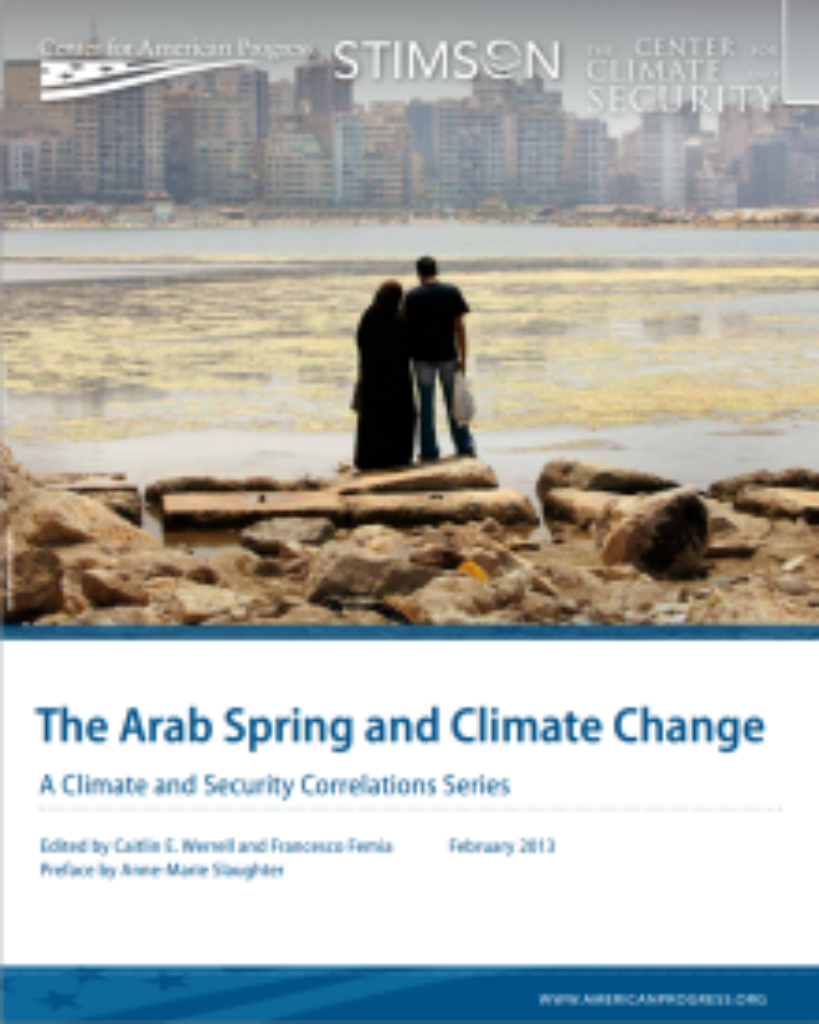“The Arab Spring and Climate Change” does not argue that climate change caused the revolutions that have shaken the Arab world over the past two years. But the essays collected in this slim volume make a compelling case that the consequences of climate change are stressors that can ignite a volatile mix of underlying causes that erupt into revolution.
This volume of essays includes the following contributions:
• Troy Sternberg of Oxford University begins by investigating the connections between climate events in other parts of the world and social unrest in the Arab world. More specifically, he looks at drought conditions in China, subsequent global wheat shortages, and how those shortages may have influenced the Egyptian uprisings. In his own words, he paints a picture of “how a localized hazard became globalized.”
• Sarah Johnstone and Jeffrey Mazo of the International Institute for Strategic Studies investigate the vulnerability of the Middle East and North Africa region to fluctuations of food supply and prices both globally and locally, and how current and projected climatic changes interact with those phenomena. They conclude that, “The Arab Spring would likely have come one way or another, but the context in which it did is not inconsequential. Global warming may not have caused the Arab Spring, but it may have made it come earlier.”
• Francesco Femia and Caitlin Werrell of the Center for Climate and Security address the influence of climate change before social and political unrest developed into large-scale conflict in Syria-a country many analysts initially deemed impervious to the Arab Spring, also known as the Arab Awakening- the projected influence of climate change after the Arab Awakening in Libya,and possible water-security solutions for building climate resilience that may simultaneously enhance cooperation and aid in resolving conflict.
• Michael Werz and Max Hoffman of the Center for American Progress investigate how “security in one place is irrevocably linked to stability in distant regions.” Werz and Hoffman use the Arab Awakening as a backdrop to explore how a 21st-century security strategy must account for “transcendent challenges,” including the nexus between climate change, human rights, and migration.
• David Michel and Mona Yacoubian of the Stimson Center explore how the Arab world could transform the risks posed by climate-change factors into sustainable economic growth and job-creating opportunities. Michel and Yacoubian look specifically at how “greening” Arab economies by adopting innovative technologies and forward-leaning government policies can simultaneously bolster employment and mitigate environmental risks, “turning two of the region’s preeminent challenges into a significant opportunity.” All of these authors are admirably cautious in acknowledging the complexity of the events they are analyzing and the difficulty of drawing precise causal arrows.

